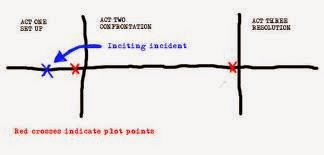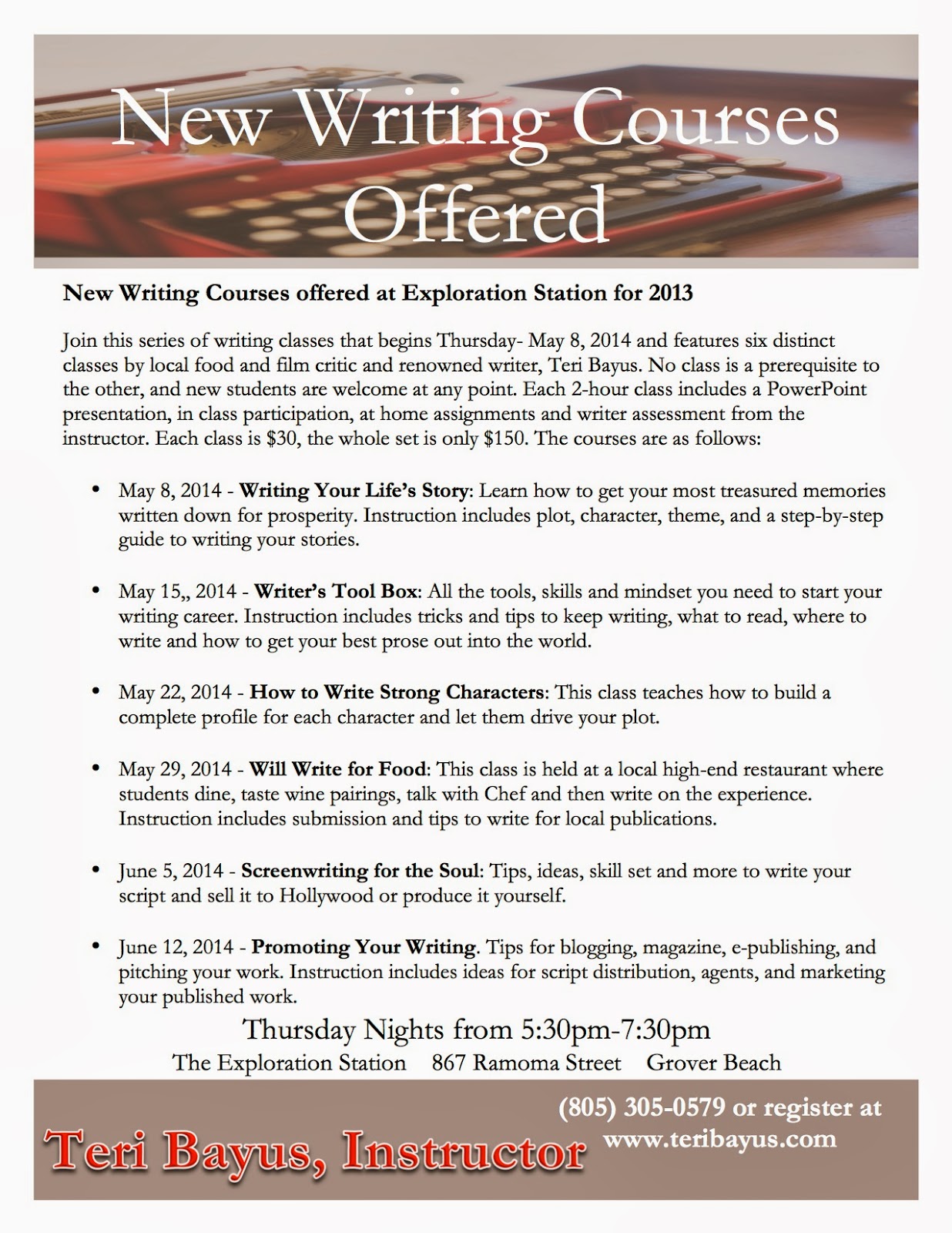This past weekend, I served as faculty at the wonderful Pike's Peak Writing Conferencein lovely Colorado Springs, Colorado. There, my first job on the first day of the conference was to take part in a roundtable blind critique session of the first pages of several manuscripts.
It's very cool to be asked to do that, because rarely do I have the opportunity to crush souls and milk dreams of their precious dreamjuice in person. Like, I could critique a page and even though the manuscripts were blind and I did not know to whom they belonged, I could still gaze out into the audience and find the author there, eyes wet and trembling as I bit into their writing with my dread incisors. And then I bellowed "DOOM" and ate the ashen pages as they wept.
Okay, not really. I do not relish the chance to destroy dreams, and I always tried to temper my criticisms with HEY I ALSO LIKED THIS because, quite truthfully, each page always had something I liked. In fact, almost all of them had at least one sentence that I wish I had written.
What was interesting to me, however, was that while each story was very different, my criticisms of those stories often kept to a few common themes. And I thought, as I always do, HEY, HOLY CRAP, BLOG POST. I can pass along my dubious critique and maybe you writers young and old can do something with them. Or maybe you'll think, "That bearded fucktart can go pound sand," and that's fine, too. And bonus points for calling me "bearded fucktart." SEE, I LIKE YOU.
(As a sidenote, I had originally thought to label this as advice for "aspiring writers," but I will remind you that aspiring is often the same as dreaming of, but never doing, and really, fuck that noise. This blog is for writers who write. Full stop.)
The First Page Is Vital
You don't realize how much that first page matters until you have to judge a story based on that first page. And then you're forced to ask the question: "Would I keep reading?"
That first page is the start of the fulfillment of promise of your premise.
It's saying, "Here is what this story is." It's the first taste of a meal -- and if someone doesn't like that first taste, they aren't always so inclined to continue unless they're starving for content. And in this day and age? Nobody is starving for content.
You're Totally Overwriting
You are using too many words to say too few things. And the words you're using are too big, or poorly chosen, or feel awkward. You're using exposition where you don't need any. You're invoking description that is redundant or unnecessary. You're giving your characters a wealth of mechanical details and actions that go well-beyond a few gestures and into the territory of telegraphing every eyebrow arch, every lip twitch, every action beat of picking up a coffee mug, blowing on it, sipping from it, setting it back down, picking it back up, drinking from it, on and on.
You're overwriting.
You're placing all this language on the page that serves no purpose except its own existence.
You're not James Joyce.
Cut. Tighten. Aim for rhythm-and-beat, not droning cacophony. Seek clarity over confusion. Early on, seek action over explanation. Mystery over answer. Leave things out rather than putting everything in. That's not to say you cannot engage in a few flourishes of language. That's not to say there won't be a kind of poetry to your description, or a certain creative stuntery in terms of metaphor. But those are not the point of what you're doing. Those are enhancements. They serve mood. They are a kind of narrative punctuation. They are single bites, not whole meals.
If your whole meal is just a wall of language, it's both too much and not enough. It's too much language, and not enough of why the fuck would I keep reading? Words are what we read, not why we read. They do not exist to serve themselves but rather, the purpose of conveying information. And the information you're trying to convey is: story.
Kill exposition. Trim description to the leanest of cuts.
The fat will come later. The conversation will deepen as the story grows.
Do not build a wall of words.
Stop overwriting.
More on this later.
Character Above All Else
Everything is character.
Because character is story.
This is not exaggeration. We read stories for characters. Characters are the prime movers of story. They say shit and they do shit and they want things and they are afraid of things and that's it. That's plot, story, that's all of it. We may stay with a story for a whole lot of reasons, but our driving reason is character. Character compels us because we are people reading stories about people. Even when they're robots or dragons or robot-dragons or orangutan secret agents, they're still people for purposes of our narrative consumption. We see ourselves as characters in our own stories and so we seek characters within stories. It's like an empathy bridge.
Your story must connect us to character immediately.
Because otherwise, I just don't care. No threat or suspense or mystery is particularly engaging if it doesn't have a character to reflect and represent it. Without strong character shot through the first page, everything you're giving me is a data point.
I don't read stories to consume data points.
If your story begins and I have no sense of character or why I should give a single slippery fuck about them, what's the point? I'm looking for connection. I want to tether myself to a character. I want to care enough to continue reading. Make me care. It's not enough to make me think. You can worry about my intellectual connection to the story later. Right now? Hit me in the emotions. Make me feel something. PUNCH ME IN MY HEARTBUCKET.
Make Something Happen
I'm bored. Your first page has bored me. Because nothing is happening. I don't mean that the first moment should be cataclysm and clamor -- but something needs to happen. Or be in the midst of happening. Repeat after me: action, dialogue, action, dialogue. Quick description as connective tissue. Short, sharp shock. Activity over passivity.
And hey, I get it. This is easier said than done. What I just told you above about character makes this part doubly tricky, and only goes to show just what an amazing trick it is to write a jaw-dropping face-kicking sphincter-clencher of a first page. It's threading like, seven different needles in one swift movement. You're trying to convey action and conversation but not without also giving us enough character to care but not so much character that you're overwriting and you're trying to say what you need to say at the bare minimum while still trying to maintain style and energy and you wanna offer mystery but not confusion and you want to inject genre without being ham-fisted and you wanna worldbuild a little bit but not write an encyclopedia...
It's hard.
I get it.
But damnit, penmonkey, you gotta try.
And you're best starting off with:
Something Is Happening.
Right fucking now. And that's why the story must be told and heard right fucking now.
Urgency! Impetus! Incitement! Excitement!
Get The Fuck Out Of The Way Of Your Story
And here, the biggest lesson of them all, and a summation of all the problems.
You are in the way of your story.
Hard truth: writing is actually not that important.
Writing is a mechanism.
It's an inelegant middleman to what we do. It's a shame, in some ways, that we even call ourselves writers, because it describes only the mechanical act of what we do. It's a vital mechanism, sure, but by describing it as the prominent thing, it tends to suggest, well, prominence.
But our writing must serve story.
Story does not serve writing.
This is cart-before-horse stuff, but important to realize.
Listen, in what we do there exist three essential participants.
We have:
The tale, the teller of the tale, and the listener of the tale.
Story. Author. And audience.
That's it.
You are two-thirds of that equation. You are the story (or, by proxy, its architect) and the teller of the story. The telling of the story is most often done through writing -- through that mechanical act, and because it's the act you can sit and watch, it's the one that is used to describe our role. I AM WRITER, you say, and so you focus so much on the actual writing you forget that there's this other invisible -- but altogether more critical -- part, which is what you're writing.
So, what happens is, early on, you put so much on the page. You write and write and write and use too many words and too much exposition and big meaty paragraphs and at the end all it serves to do is create distance between the tale and the listener of the tale.
It keeps the audience at arm's length.
Quit that shit.
Bring the audience into the story. This is at the heart of show, don't tell -- which is a rule that can and should be broken at times, but at its core remains a reasonable notion: don't talk at, don't preach, don't lecture, don't fill their time with unnecessary wordsmithy.
Get. To. The. Point.
And the point is the story. Not the words used to tell that story.
Here, look at it this way: you ever have a conversation with someone and they tell you a story -- something that happened to them, some thing at work, some wacky sexual escapade featuring an escaped circus shark and a kale farmer named "Dave" -- and you just want to smack them around and tell them to get to the actual story? Like, they just dick around in the telling of the tale, orbiting the juicy bits and taking too goddamn long to just spit it out? Maybe they think they're creating suspense, but they're only creating frustration. Or maybe they know -- as we all do, sometimes -- that the story they're telling is actually ALL HAT, NO COWBOY, and they're trying to fill the time with hot air in much the same way you might pad a college paper with several shovels of additional horseshit to lend it weight (and, incidentally, stench)?
Stop doing that.
Stop wasting time.
Get the fuck out of the way of your story.
You are a facilitator. Writing is a mechanism. It can be an artful and beautiful mechanism, but without substance behind it -- without you actually saying something and sharing a story -- it is a hollow, gutless art. The story is what your audience wants, needs, and cares about.
























